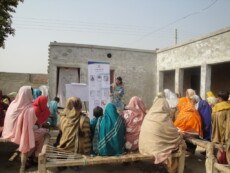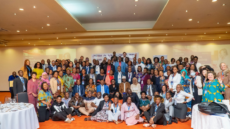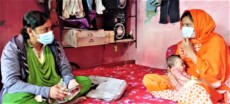Advancing New Directions for Family Planning Measurement
International family planning (FP) measures, such as contraceptive prevalence, unmet need, and demand satisfied, have served as critical indicators for tracking progress and assessing [...]
Women’s Empowerment and Contraception in Low- and Middle-Income Countries
This article was originally published in N-IUSSP. Reprinted with permission. Traditionally, family structures have been authoritarian and age- and gender-stratified, with norms ensuring [...]
The Three-Month Dapivirine Vaginal Ring for HIV Prevention
The Issue HIV remains a major global public health concern with a disproportionate burden on women. Oral pre-exposure prophylaxis (PrEP) has been an important [...]
Addressing Garment Factory Workers’ Needs for Family Planning Information and Services in Bangladesh, Cambodia, and Egypt
Globally, the garment industry employs nearly 94 million workers and more than 70 percent of them are women. Predominately, garment factory workers who are [...]
Revitalizing and Expanding Commitment to Family Planning: A Shared Vision and Partnership for the Anglophone African Region
Voluntary family planning (FP) fosters the right of women to decide freely and for themselves whether, when, and how many children to have. Yet [...]
A Retrospective with Zeba Sathar
Pakistan’s Ministry of Planning Development and Special Initiatives celebrated its 75th anniversary by recognizing individuals and organizations for distinguished and exceptional achievements in the [...]
Improving Acceptability, Use, and Continuation of Intrauterine Devices (IUDs) in Bangladesh
The Council is conducting longitudinal research to improve the experiences of IUD users in the Keraniganj, Savar, and Nawabganj Upazila regions of Dhaka District [...]
Adolescent Girls Prospective Cohort Study in Nigeria
The Population Council’s Girl Innovation, Research, and Learning (GIRL) Center, with funding from the Children Investment Fund Foundation, is implementing a longitudinal cohort study [...]







